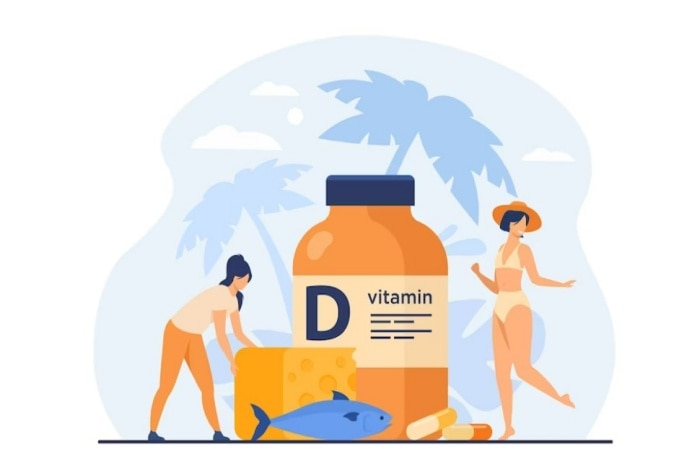Vitamin D deficiency is a very common but important health problem throughout India. Everyone else is more likely to have low vitamin D levels and supplements are not enough.
“My vitamin D levels are not good.” This is a common saying and an even more common problem that India is dealing with. Unexplained prolonged fatigue, weak muscles, and brittle bones are just the tip of the iceberg-like signs and symptoms. Vitamin D is one of the most important nutrients our bodies require for optimal function. Helps build stronger bone structure, strengthen bones and muscles. Also, known as the sunshine vitamin, maintaining optimal levels of vitamin D will help reduce the risk of other health complications such as loss of bone density, osteoporosis, broken bones, diabetes, heart disease, low energy levels, etc.
WHY IS VITAMIN D IMPORTANT?
Vitamin D has several important functions. Perhaps the most vital regulate the absorption of calcium and phosphorus. Getting vitamin D is important for the normal growth and development of bones and teeth. Helps regulate the immune system and the neuromuscular system. People need vitamin D to allow the intestines to stimulate and absorb calcium and to recover calcium that the kidneys would otherwise excrete.
5 WAYS TO INCREASE VITAMIN D LEVELS NATURALLY
- Balanced sun exposure: While it’s vital to protect yourself from skin cancer by avoiding overexposure to sunlight, unprotected sun exposure doesn’t take long for your body to start making vitamin D. While there’s no official recommendation, according to some studies, as little as 15 – 20 minutes of exposure are enough to produce enough vitamin D.
- regular exercise: Regular exercise helps with the production of vitamin D. Including physical activities every day is beneficial in combating various health problems.
- Foods rich in vitamin D: .Animal-based: Egg yolks, fatty fish, and shellfish are among the richest natural food sources. Plant Based: Mushrooms, Amaranth, Ragi, Soybeans, Curry Leaves, Sesame Seeds.
- Increase magnesium intake: Magnesium aids in the activation of vitamin D, which helps regulate calcium and phosphate homeostasis to influence bone growth and maintenance. Therefore, it is essential to ensure that the recommended amount of magnesium is consumed. Food sources: almonds, bananas, beans, broccoli, cashews, egg yolks, green vegetables, mushrooms, oats, pumpkin seeds, etc.
- Vitamin D supplements: Taking vitamin D supplements can be helpful, but should only be taken on the recommendation of your doctor.
FOODS RICH IN VITAMIN D
- Fungus
- greasy fish
- Seafood
- Eggs
- Fortified foods like orange juice, cereals, etc.
Vitamin D deficiency is close to what can be called an epidemic and the first question is, how do we increase vitamin D levels? While this is generic information, it is important to maintain a healthy diet and lifestyle and get more sun exposure. Get regular health checkups and make changes only on the advice of a medical professional.
Published Date: July 7, 2023 10:23 AM IST
–>
–>


